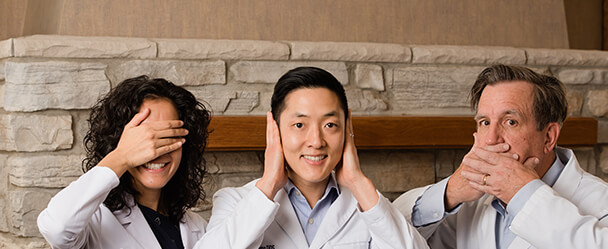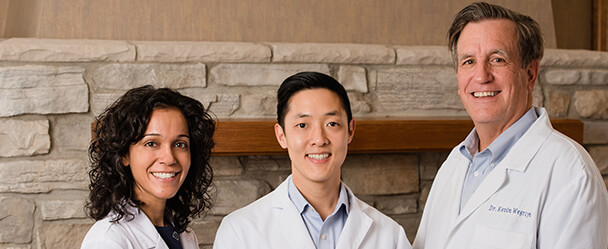Partial & Complete Dentures
Dentures are an affordable option to replace one or more missing teeth and can be an alternative treatment choice to a dental bridge or a dental implant.
WHY IS IT IMPORTANT TO REPLACE MISSING TEETH?
At Family Roots Dentistry, we like to think of teeth like books on a bookshelf. If you remove a book and do not replace it, the other books will tip and shift around. Similarly, when a tooth is removed and not replaced, the remaining teeth can tip and shift around. When teeth shift out of their normal position, this puts you at an increased risk for gum disease and bone loss as well as cavities. Teeth shifting can also cause an imbalance with your jaw joints, leading to discomfort as well as premature ‘wear and tear’ on your remaining teeth (including chipping or breaking teeth).
WHAT ARE REASONS WHY A PARTIAL OR COMPLETE DENTURE WOULD BE RECOMMENDED?
WHAT ARE THE DIFFERENT TYPES OF DENTURES?
Depending on the number of teeth missing, there are 2 types of dentures: partial or complete. Both are custom-made to your mouth to provide optimal comfort and fit.
Partial Dentures
Partial dentures are made if a person is missing only some of their teeth. They stay in place by clasping, or anchoring, onto your remaining teeth. The underlying base of the partial denture rests comfortably on the gums and can now be made with or without metal. A gum-colored acrylic material and natural-looking replacement teeth are attached to the base to blend in with your smile.
Complete Dentures
Complete dentures are made if a person is missing all of their teeth. They stay in place by closely fitting, or “suctioning”, onto the underlying gums and bone of your mouth. The underlying base is made out of a thin, gum-colored, acrylic material and natural-looking replacement teeth are attached to the base, giving the appearance of a natural smile.
Implant-Supported Dentures
Some of the most common complaints among complete denture-wearers are that their dentures are:
Thanks to modern-day advancements in dentistry, there is now an excellent solution to these common complaints that is better and more reliable than traditional dentures: implant-supported dentures. The use of implants provides a significant improvement in retention, requires less thickness and material to be used to make the denture, increases bite force, and prevents bone loss so that the denture fits just as well as it did from the start.
Removable dentures have strong built-in attachments that snap into place on the implant. There is now also the option for fixed, (non-removable) dentures which are securely attached to the implants and provide the ultimate level of retention and stability. With implant-supported dentures, you really do have the peace of mind to never worry about your dentures falling out mid-sentence or mid-meal again!
For more information or to learn more about which denture option may be best for you, call us at (815) 385-4411 or visit our contact page.



